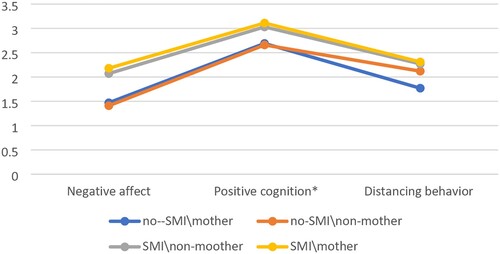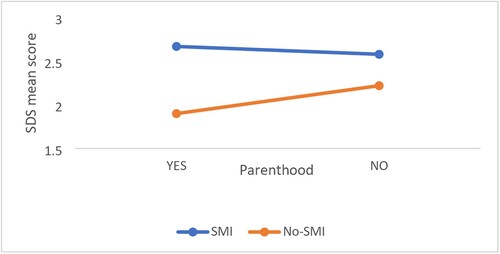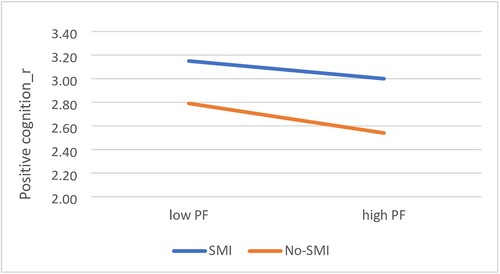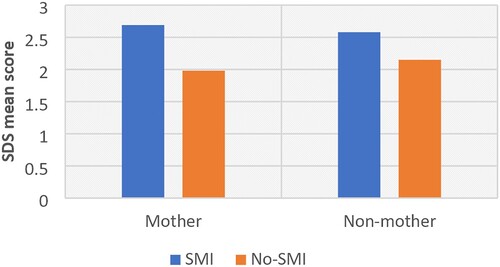Figures & data
Table 1. Demographic data of the participants (n = 150).
Table 2. Participants’ attitudes (means, SDs) towards women (mothers and non-mothers) with SMI\without SMI according to the Multidimensional Attitudes Scale (MAS) and Social Distance Scale (SDS) factors.
Figure 2. Main effect for SMI on the factors of the MAS: negative affect, positive cognition, and distancing behaviour. *Positive cognition-high scores mean lower level of positive cognition and vice versa.

Figure 3. An interaction effect between SMI of the target person and parenthood of the observer of SDS.

Figure 4. An interaction effect between of SMI and psychological flexibility (PF) on positive cognition. Note: Positive cognition-high scores mean lower level of positive cognition and vice versa.

Data availability statements
The data that support the findings of this study are available from the corresponding author upon request.



